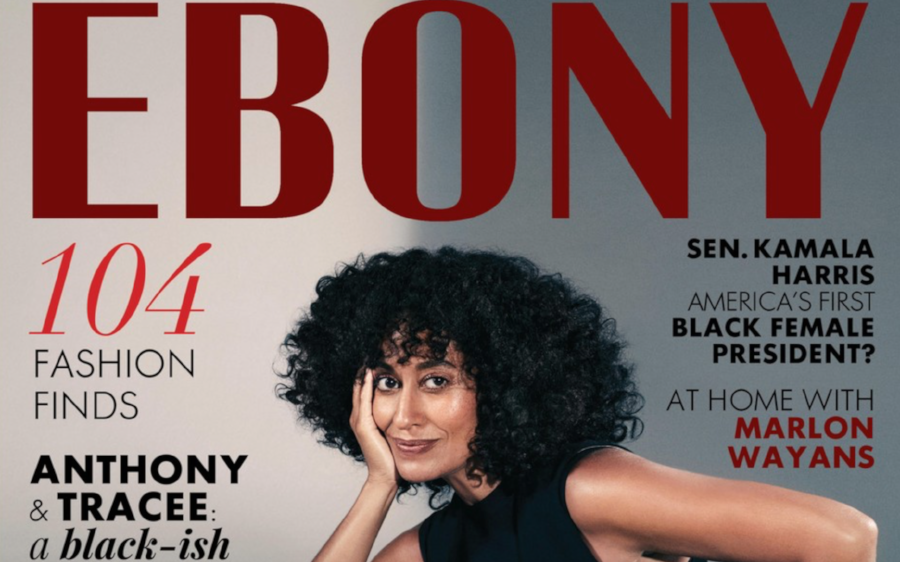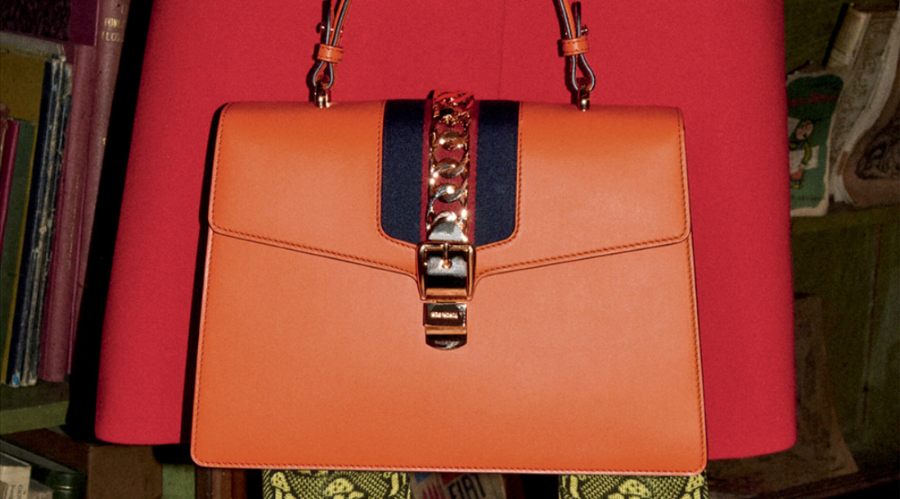 image: Gucci
image: Gucci
Lawsuits that pit fashion brands and retailers against one another are filed almost every day and in some cases, such as when sportswear giants and intellectual property are involved, these disputes are seemingly only increasing frequency. In light of the large number of cases on courts’ dockets across the country (and internationally) involving fashion brands and various media companies, some certainly stand out more than others in terms of the potential ramifications they will have for the companies at play and sometimes, on the fashion and media industries at large.
Following from previous posts in this running series, here are five (more) currently pending cases that are worth keeping an eye on …
1. Daimler v. Amazon
 image: Amazon
image: Amazon
In October, Mercedes Benz’s parent company, Daimler AG, filed suit against Amazon.com, alleging that the e-commerce giant is actively engaging in trademark infringement and counterfeiting. While this might sound like your typical counterfeit-focused lawsuit, it isn’t. Not only does Daimler call foul on the sale of infringing and counterfeit goods by third-party marketplace sellers (which is what almost all of the lawsuits involving platforms like Amazon have alleged to date), it alleges that Amazon, itself, is actively selling counterfeit goods.
In its complaint, Daimler alleges that Amazon has been the subject of widespread bad press because of the sale of “an exorbitant number of counterfeit and infringing goods” on its site. A significant portion of those sales come from third parties that use the Amazon platform due to a what Daimler calls a “lack of effective regulation” by Amazon.
However, “Amazon itself also sells infringing items as ‘Ships from and sold by Amazon.com’ products,” per Daimler.
As the auto-giant notes, one of the driving motivations behind consumers’ choice to purchase products that bear a “Ships from and sold by Amazon.com” designation is “to avoid the risk that they will unwittingly purchase counterfeit goods from unscrupulous third parties in the Amazon Marketplace, believing that items they purchase from Amazon will be vetted by Amazon and authentic.”
The problem, per Daimler: That assumption is incorrect because no shortage of the products listed as “Ships from and sold by Amazon.com” are counterfeit since “Amazon refuses to take reasonable steps to police intellectual property infringement or to source their ‘shipped from and sold by Amazon.com’ products only from authorized manufacturers, wholesalers, and retailers.”
The outcome of this lawsuit – assuming that Amazon goes to trial and is found liable for its alleged failures to weed out counterfeit goods from its site – could have some significant implications for the site and its anti-counterfeiting methods/measures, as well as for other marketplace-style platforms. While such sites were largely let off the hook, so to speak, in the Tiffany v. eBay case almost 10 years ago, a ruling against Amazon in this case could change all of that.
2. 40+ Freelancers v. Ebony Magazine
 image: Ebony
image: Ebony
Ebony has been slapped with a labor lawsuit on behalf of nearly 40 writers, editors and other creatives, who allege that the magazine has failed to pay them for their contributions to its print and web publications in violation of state wage and labor laws.
Larry Goldbetter, president of the National Writers Union, which is representing the class of 39 individual freelancers, says the lawsuit is the necessary next step in the fight to organize freelancers to fight against “publishers seeking to exploit creative labor.” Such a movement is necessary, he says, as “oftentimes, freelancers are at the mercy of the publications they write for. They often lack union protections other workers have and many are afraid of being blacklisted, so to speak, for speaking up about non-payment.”
The lawsuit is particularly noteworthy due to the fact that fashion is an industry that is largely made up of freelancers, whether it be writers or editors, makeup artists or stylists, etc., and no shortage of them tend to go unpaid or are paid in a less than timely manner. The suit comes amidst widespread complaints from within the fashion industry – and beyond – regarding the terms in many major publications’ deals with freelance writers and other creatives.
For instance, this spring, Vogue’s parent company Condé Nast made headlines for adding language to its freelance contracts to allow for quicker payment in exchange for a discount on the agreed-upon rate. This set the industry and the internet abuzz with fury.
The lawsuit’s filing, alone, should send a message to publications to stay on top of their invoices for freelancers; as for a favorable ruling for the nearly 40 individuals who allegedly have not been compensated by Ebony, that would send an even stronger message, both to Ebony and other major publications, as well.
3. The Forever 21 Lawsuits: Gucci, adidas
 image: Gucci
image: Gucci
Forever 21 has long been known to allocate funds within its annual budget in order to settle lawsuits filed against it for various intellectual property infringement-related matters. Those days appear to be gone, to some extent, at least, as the Los Angeles-based fast fashion giant is not sitting by idly when it is called out for copying. This was made perfectly clear this summer when Forever 21 filed back-to-back declaratory judgment suits against Gucci and adidas after the two brands threatened F21 with lawsuits of their own.
While the two separate legal matters differ in various factual regards, both center on Forever 21’s allegedly infringing use of striped trademarks. For adidas – which has been called a “bully” by Forever 21 for its overly “aggressive enforcement [of] its perceived trademark rights” – the trademark at issue is its plain colored 3-stripe mark. For Gucci, the suit centers on its blue-red-blue and green-red-green stripe trademarks, which Forever 21 has since called on the court to invalidate.
In both cases, Forever 21 responded to cease and desist letters from the brands by filing declaratory judgment actions against them. For the uninitiated, a declaratory judgment is a binding judgment from a court defining the legal relationship between parties and their rights in the matter before the court. It asserts the court’s authoritative opinion regarding the exact nature of the legal matter without requiring the parties to do anything.
In the adidas case, Forever 21 – “tired of operating with a cloud over its head with regard to its right to design and sell clothing bearing ornamental/decorative stripes, and unwilling to stop doing something it has every right to do and pay a bully to leave it alone” – claims that consumers are not likely to be confused between its fashion-centric wares and Adidas’s garments. This is the central inquiry in a trademark infringement matter. As such, Forever 21 asserts that its use of between two and four stripes on its apparel does not infringe or dilute Adidas’s three-stripe trademark.
When it comes to Gucci, Forever 21 not only wants to be left alone, it wants the court to invalidate a handful of Gucci’s striped trademark registrations, as, according to Forever 21, “Many clothing and accessory items adorned with decorative stripes colored blue-red-blue or green-red-green are sold by countless third parties … The colors red, blue, and green, and stripe designs, are among the most favorite, popular and widely used colors and design features on clothing.”
As such, Forever 21 states that “Gucci should not be allowed to claim that Gucci, alone, has a monopoly on all blue-red-blue and green-red-green striped clothing and accessory items.”
While both cases are still ongoing, and regardless of their outcomes (which very well could result in some potential scale backs in terms of aggressiveness from Gucci and adidas should they be found to be overreaching in terms of their infringement claims), the filings make a clear statement that Forever 21 will no longer react quietly to threats of litigation.
4. Playboy v. BoingBoing
The internet, generally, and no small part of social media operates largely based on the sharing of links to others’ websites. So, is it legal to publish links to copyright protected imagery without the copyright owner’s authorization? That is key inquiry in a new lawsuit that Playboy filed against BoingBoing’s parent company Happy Mutants, LLC.
In particular, Playboy filed a copyright infringement lawsuit against Happy Mutants over a February 2016 article, entitled, “Every Playboy Playmate Centerfold Ever.” According to Playboy’s complaint, BoingBoing – known, among other things, for its pro-fair use stance when it comes to online content – is on the hook for the “publication of [746 images, or “every Playboy Playmate centerfold”] … without [Playboy’s authorization] for commercial purposes on its website, including, but not limited to, their use in articles and advertising.”
While this might appear – on its face – to be an open-and-shut case of copyright infringement, things get interesting when we consider the specifics, namely, that BoingBoing did not actually put more than one of the 746 images on its site. Instead, in the article at issue, BoingBoing writer Xeni Jardin stated, “Some wonderful person uploaded scans of every Playboy Playmate centerfold to Imgur. It’s an amazing collection, whether your interests are prurient or lofty. Kind of amazing to see how our standards of hotness, and the art of commercial erotic photography, have changed over time.”
Then the article contained a link to the non-BoingBoing created Imgur page and included an embedded YouTube video that featured the 746 images, and which was, according to BoingBoing’s article, created by “YouTuber Ryan Powers.”
As TechDirt’s Mike Masnick asserts, Playboy “arguing that BoingBoing is responsible, merely for writing about the collection and linking to it, is pure nonsense.” Interestingly enough, though, a similar case went before the European Union’s top court last year, with the Luxembourg-based Court of Justice of the European Union deciding that posting such links infringes a party’s copyrights when the website doing it is seeking to profit from the pictures published without permission.
The decision of the U.S. District Court for the Central District of California in the Playboy v. BoingBoing case will be telling not only for BoingBoing and its parent company, but for the business of nearly all digital publications.







